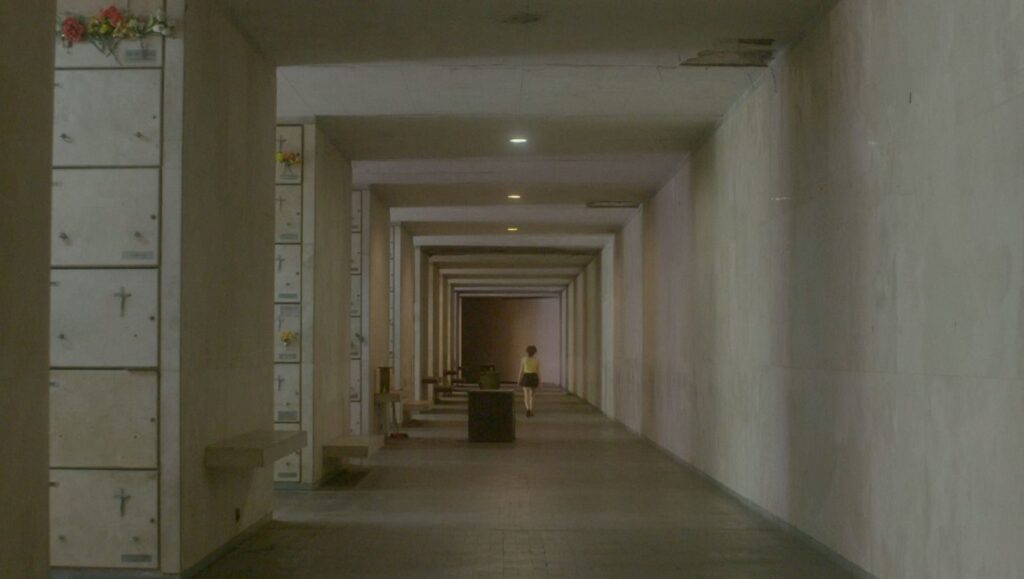Iva Radivojević’s Aleph builds itself atop Jorge Luis Borges’ short story of the same name, rendering a small tale of infinity-seeking, a philosophical riff on the Whiteheadian theories that surround interconnectivity in what is commonly referred to as the “metaphysical realm.” The film follows 6 voices, each of different nationality. What emerges, once these disparate segments have coalesced, is a portrait of the space that exists in between one another, individual subjects acting as a vessel through which we can make tangible even the most surreal imagination of collectivity, of empathy. Its aim, it then seems, is the refutation of solipsism.
For viewers who don’t identify as spiritualists, the film’s cognitive mapping of the world-at-large might fail to provoke any earnest reaction, but where an interesting entry point to these notions can be found is in a Talmudic assessment. The Torah, as it is read today, begins not with Aleph (or Alef), but Bet, the second letter of the Hebrew alphabet. Rabbis of a bygone age made this decision to ensure that the beginning of our universe, in translation from an oral history to a written one, could not be concentrated to a single moment. Aleph, then, became an unknown, an everything — Bet starts history, Aleph is everything else. Certainly, this bit of rabbinic scholarship influences the fluidity on display in Aleph, an interest directed outward and between the self and others. Unfortunately, these larger-than-us concepts crystallize into a film with movements that ultimately fail to reconcile with the limitations of a mechanical apparatus. We see the universe through a washed-out lens, an S-log, barely color-corrected vision — a prosumer, digitized reality. The world is made homogenous in its re-presentation, and this homogeneity eventually swallows up curiosity, creating a landscape more in the vein of touristic postcards and less concerned with the impossibility at the crux of its ostensible interests. Characters become liminal imports of narrativity, culminating in a vague, all-too-organized orchestration of what is supposed to be amorphous. Aleph is a film that seeks to chisel a shape out of water, a respectable ambition, undoubtedly, but not one that can be contained here. In the end, it seems that Radivojević is seeking to give form to something that, in reality, can never have one.
Published as part of New Directors/New Films 2021 — Dispatch 2.


Comments are closed.